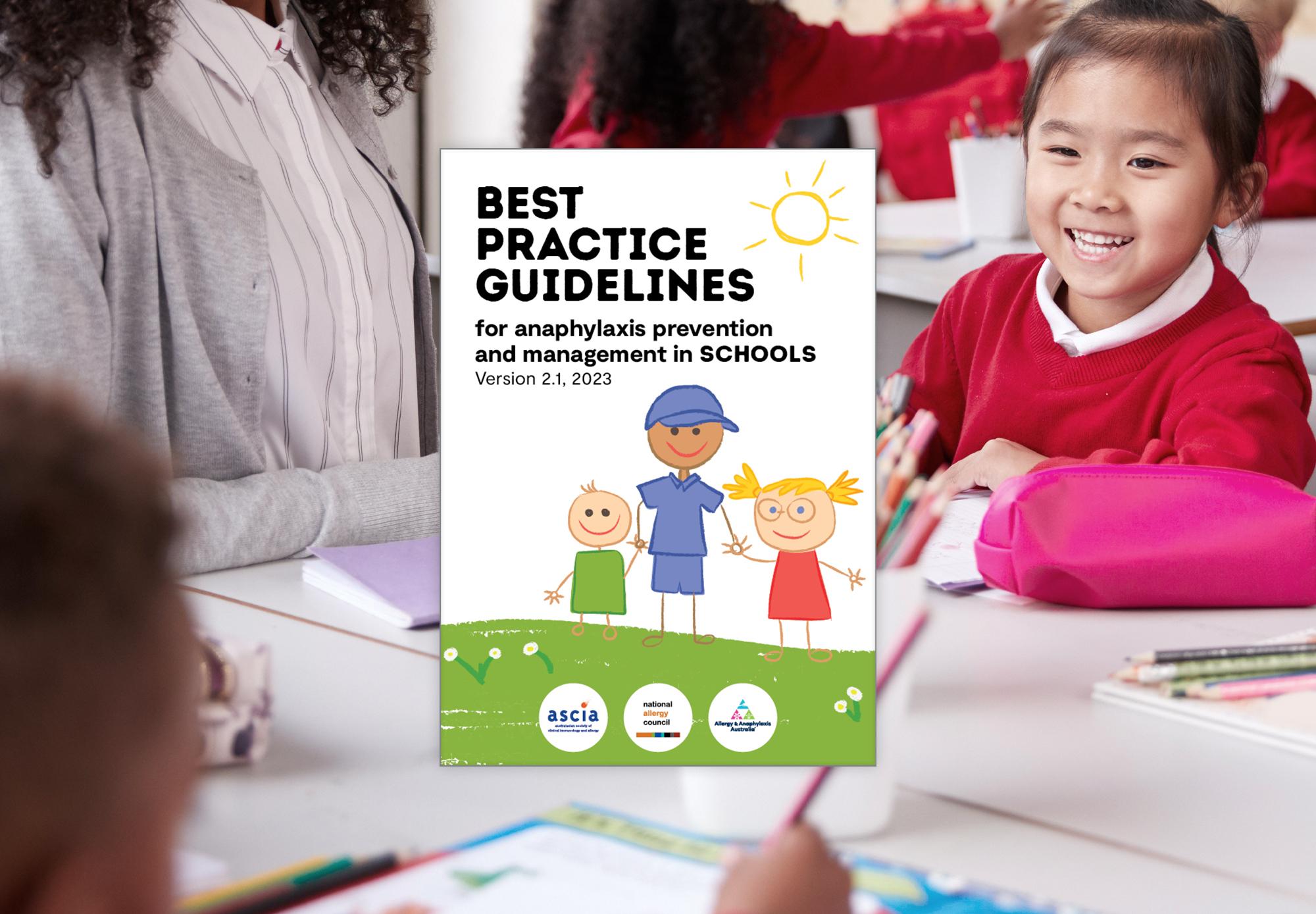Best practice guidelines for anaphylaxis prevention and management in schools

Update November 2025: New version coming soon
The National Allergy Council Best Practice Guidelines for Anaphylaxis Prevention and Management in Schools (the Best Practice Guidelines) are based on the current evidence and best practice.
The Best Practice Guidelines were developed by the National Allergy Council in consultation with key stakeholder organisations, principals and staff working in the school sector and parents of school-aged children.
The Best Practice Guidelines aim to provide best practice guidance and support through the provision of sample documents and templates, to reduce the risk of anaphylaxis in schools, while supporting students to participate in the full range of school life.
The Best Practice Guidelines have been developed to provide guidance and support to schools across all states and territories of Australia. However, it is important to note the following:
Where state or territory legislation exists, schools must comply with the legislation in their jurisdiction.
States and Territories may have existing policies or guidelines, and schools are encouraged to comply with the policies or guidelines in their jurisdiction.
The Best Practice Guidelines may recommend measures which are additional to the legislation and/or guidelines in your state or territory, and implementing these additional measures where possible, is encouraged.
The Best Practice Guidelines may be used by any school sector (such as Education Departments, Independent Schools Associations and Catholic Education) when reviewing and updating guidelines, policies and procedures to standardise anaphylaxis management across Australia. The Best Practice Guidelines are also designed to be used at an individual school level to manage students at risk of anaphylaxis.
The Best Practice Guidelines help prevent and manage anaphylaxis in students, however, schools should also have strategies in place for staff, volunteers and visitors with allergies.
Content updated March 2024